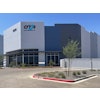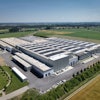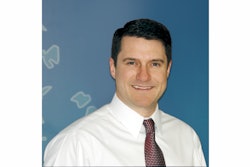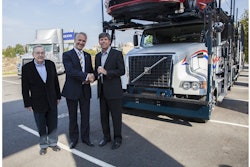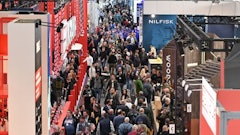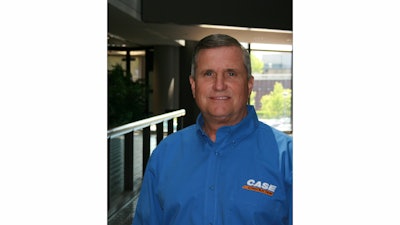
responses by Jim Hasler, Vice President – North America, CASE Construction Equipment
[POLITICS] What government regulations, standards and/or bills were passed in the past year that most affected off-road equipment manufacturers?
The expiration of MAP-21, and the temporary legislation enacted that will fund the Highway Trust Fund through May of 2015, is the most significant public policy issue we face as an industry. We fully support efforts to enact long-term federal funding for transportation and infrastructure projects. We also believe that there are great opportunities for state and local governments to enact new funding mechanisms. Most states have shortfalls when it comes to funding, and this problem will not be solved with federal dollars alone. A good example of forward thinking is Pennsylvania, a state that passed legislation in November 2013 that has provided new money for highway and bridge projects.
Another important piece of legislation passed in 2014 was The Water Resources Reform and Development Act (WRRDA), which will fund major water infrastructure projects throughout the country.
[POLITICS] Were you able to get involved in the conversation on behalf of off-road OEMs?
CASE launched Dire States last year to raise awareness of our ailing infrastructure system and the impact it has on our customers and our lives. The team travelled around the country with an infrastructure author and his 1949 Hudson – a metaphor of the condition of our interstate system – to chronicle the state of our infrastructure. Along they way, they met with contractors, dealers, universities, local business groups and other public officials to build support for infrastructure investment at the state and local level.
Awareness quickly transitioned to advocacy, as CASE now supports initiatives that advance local infrastructure development. We have been actively involved with the push for Proposition 1 on the Nov. 4 ballot in Texas – an amendment that will bolster that state’s highway fund by an additional $1.7 Billion annually. And we recently hosted an event with elected officials in support of policies to grow manufacturing in the US, as well as a constitutional amendment in Wisconsin that will guarantee that money generated by transportation-related resources (fuel taxes, vehicle registration fees) is only used for maintaining and building transportation systems.
[POLITICS] How do you foresee the effects of these regulations/standards continuing into the upcoming years?
Current funding levels make it hard for state and local governments to maintain existing levels of traffic and maintenance on our transportation systems. A long-term federal funding solution will help, but we’re also encouraging local governments to find new ways to build and maintain these systems. As a nation, we require a robust infrastructure to keep us competitive in the global marketplace. As individuals, infrastructure impacts everything from our commute to our livelihood and well-being. We will need to continue to advance new and innovative methods of funding these systems.
[CONSOLIDATION] Now that Tier 4 Final is underway, many companies’ engineering resources have been freed up to refocus on developing new products instead of refining existing products to meet regulatory expectations. Have you seen this refocusing? What does this mean for future equipment designs and advanced system development?
CASE was always focused on product improvements – even in the face of emissions regulations. We had the advantage of leveraging the experience of CNH Industrial’s global research and development teams, as well as Fiat Powertrain Technologies (FPT), to develop solutions that meet or surpass emissions compliance while also advancing productivity and efficiency. We customized the emissions technology for each model to go beyond compliance. We were not satisfied with simply checking the Tier 4 Box since it meant a bigger investment for customers.
In fact, our partnership with FPT made CASE the first construction equipment supplier in North America to implement selective catalytic reduction (SCR) technology, taking years of technological excellence from the on-road industry and revolutionizing the wheel loader and dozer product lines. CASE machines produce optimal power while burning minimal fuel thanks to advances in high-pressure common rail (HPSCR) systems and new piston designs. CASE has always placed an emphasis on hydraulics, and those systems continue to become more powerful to complement Tier 4 and enhance machine performance. And advances in electronics have made machines easier to operate via more intuitive controls – while enabling telematics to provide more equipment data that gives business owners the information they need to make intelligent equipment owning and operating decisions.
All of these design advances are available now, and form the foundation for the next generation of machines that will hit the market post Tier 4.

